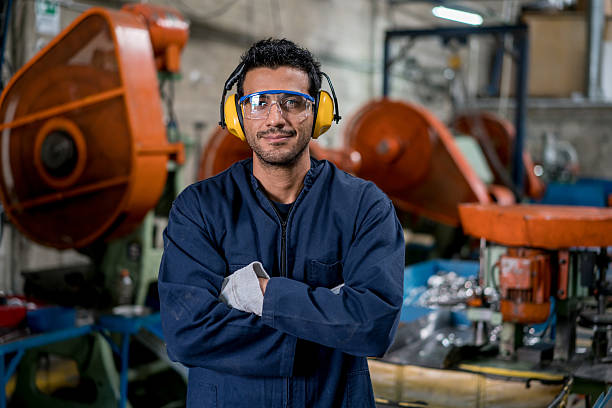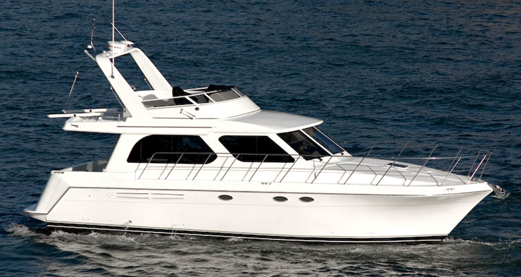Industrial worker uniform play a vital role in protecting employees across various sectors in Dubai. From construction to manufacturing, the right workwear ensures safety, comfort, and compliance with industry standards. This guide explains the essentials of industrial uniforms, their importance, and what businesses in Dubai should consider.
Importance of Industrial Worker Uniforms in Dubai
Ensuring Safety in Hazardous Work Environments
Dubai’s industrial landscape includes high-risk sectors like construction, oil and gas, logistics, and metal fabrication. Workers in these fields often face exposure to heat, chemicals, sharp objects, and electrical hazards. Uniforms designed for industrial use reduce these risks by providing suitable protective features.
Meeting Legal and Industry Requirements
The UAE has strict labor and safety regulations under the Ministry of Human Resources and Emiratisation (MOHRE). Employers are responsible for providing adequate personal protective equipment (PPE), including uniforms that match the job’s risk level. Using approved materials and complying with industry-specific dress codes is essential for legal operations.
Common Types of Industrial Workwear Used in Dubai
Coveralls and Overalls
Coveralls are one-piece suits that offer full-body protection. They are commonly worn in construction, welding, and oilfield jobs. Materials often include flame-resistant cotton or polyester blends to withstand heat and chemical exposure.
High-Visibility Clothing
Hi-vis vests, shirts, and jackets are mandatory for workers near roads, airports, and construction zones. These garments use fluorescent colors and reflective strips to enhance visibility during low light or night shifts.
Safety Jackets and Coats
Thermal and padded jackets are used in cold storage or outdoor winter projects. In Dubai’s cooler months, such gear helps maintain worker comfort without compromising safety.
Flame-Resistant (FR) Uniforms
For industries dealing with flammable materials or high-temperature machinery, FR uniforms are essential. These garments are treated with fire-retardant chemicals and are widely used in energy, electrical, and metalwork sectors.
Key Features of Quality Industrial Uniforms
Durability and Fabric Strength
Industrial environments can be harsh on clothing. Fabrics must be tough enough to handle wear and tear. Cotton blends, canvas, and reinforced stitching are common choices for long-lasting use.
Comfort and Breathability
In Dubai’s hot climate, breathability is important. Lightweight materials with moisture-wicking properties help workers stay cool and comfortable during long shifts.
Custom Fit and Mobility
Work uniforms should allow freedom of movement. Ill-fitting uniforms can hinder productivity or become a safety hazard. Stretch fabrics, adjustable cuffs, and ergonomic cuts improve functionality.
Easy Maintenance
Uniforms that are easy to wash and quick to dry are ideal for daily use. Many companies prefer machine-washable, stain-resistant fabrics that retain color and shape over time.
Industry-Specific Uniform Requirements in Dubai
Construction and Civil Engineering
Construction workers require helmets, high-visibility vests, gloves, and steel-toe boots. Their uniforms must support physical activity, protect against falls and impact, and be suitable for dusty environments.
Oil and Gas Sector
This sector demands flame-resistant uniforms with chemical-resistant properties. Uniforms should also protect against extreme heat, oil spills, and static electricity buildup.
Warehousing and Logistics
Warehouse workers wear cargo pants, safety shoes, and sometimes hi-vis vests depending on the facility layout. Lightweight and breathable fabrics are preferred to ensure comfort during high-movement tasks.
Manufacturing and Production
Depending on the machinery involved, uniforms may include aprons, arm guards, or anti-static gear. Noise-heavy environments may also require hearing protection, making it essential to integrate PPE compatibility with uniform design.
Climate Considerations for Industrial Uniforms in Dubai
Heat-Resistant Fabrics for Summer
With temperatures soaring above 45°C in summer, workers need uniforms that can withstand extreme heat. Mesh panels, breathable linings, and UV-resistant fabrics are practical for outdoor work.
Layered Options for Cooler Seasons
While Dubai has a mostly hot climate, evenings in winter or early mornings can be chilly. Workers in cold storage or logistics may require insulated vests or jackets layered over standard uniforms.
Moisture Control and Ventilation
Sweating is common in industrial work. Uniforms with ventilation zones under arms and backs, combined with moisture-wicking technology, help manage perspiration and prevent overheating.
Tips for Choosing the Right Industrial Workwear
Identify the Job’s Safety Risks
Assess the potential hazards—fire, chemicals, height, heavy machinery, or exposure to the elements. Each risk requires specific features in a uniform.
Prioritize Worker Comfort
Uncomfortable uniforms reduce productivity and morale. Choosing light, soft, and flexible materials improves satisfaction and job performance.
Comply with Local Standards
Ensure all uniforms meet UAE labor laws and international safety standards like ISO, EN, or ASTM. This minimizes legal risk and improves workplace safety culture.
Invest in Proper Sizing and Fit
Providing the right size for each worker prevents accidents and increases mobility. Avoid generic sizing that doesn’t account for different roles and body types.
Conclusion
Industrial worker uniforms in Dubai are more than just clothing—they’re a critical part of workplace safety and efficiency. Each sector demands specific types of workwear tailored to the risks involved. From flame resistance to breathability, modern uniforms must balance safety, comfort, and compliance. As Dubai continues to grow its industrial capacity, the role of well-designed uniforms will remain essential in protecting the workforce and enhancing productivity.


